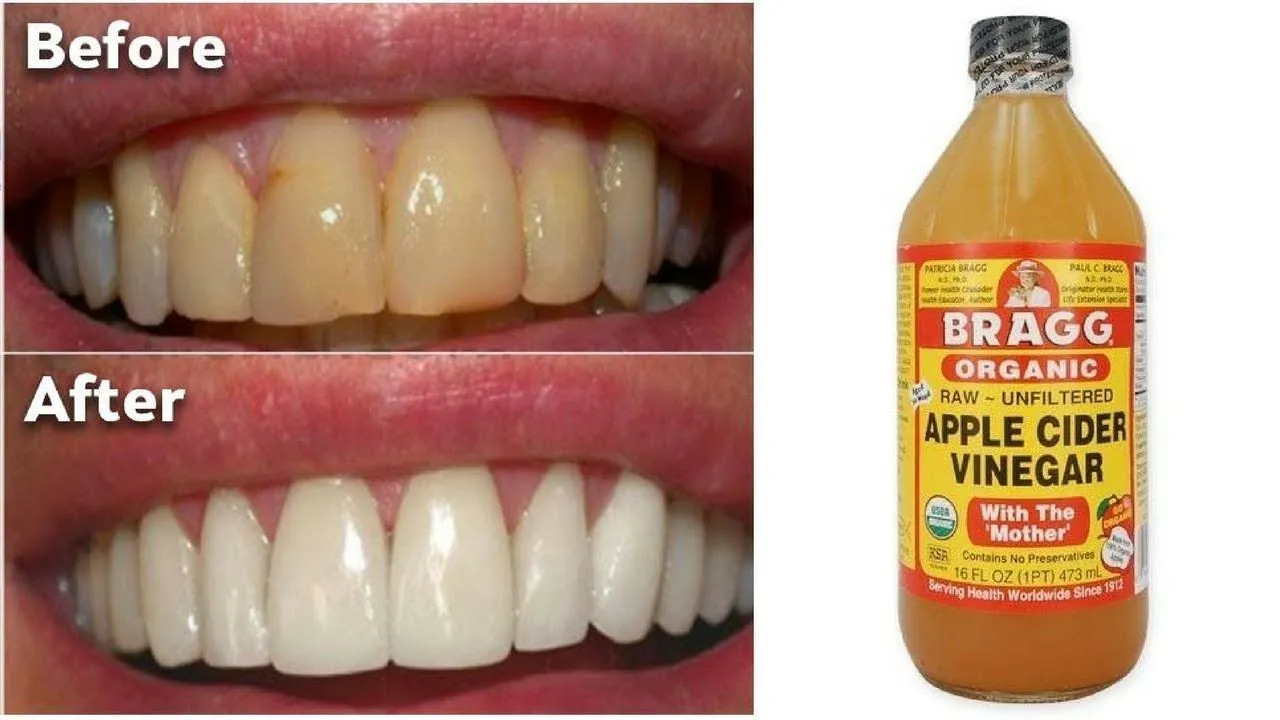What is ACV and How Does It Work
Apple Cider Vinegar, often abbreviated as ACV, is a type of vinegar made from fermented apple juice. It is a popular natural remedy used for a variety of health and wellness purposes. The fermentation process converts the sugars in the apples into acetic acid, which is the main active compound in ACV. This acid gives ACV its sour taste and strong smell. Besides acetic acid, ACV also contains other beneficial compounds, including enzymes, probiotics, and minerals. The use of ACV dates back centuries, with historical applications ranging from culinary uses to medicinal treatments. Its versatility has made it a staple in many households, and recent studies have explored its potential health benefits. Understanding the composition and properties of ACV is crucial before exploring its applications, including its use for teeth whitening.
Understanding the Benefits of ACV for Teeth
The purported benefits of using ACV for teeth whitening stem from its acidic nature. Acetic acid is believed to help remove stains and discolorations from the teeth’s enamel. Some proponents suggest that ACV can dissolve the plaque and tartar buildup that contributes to a dull appearance. Furthermore, ACV may have antibacterial properties that help reduce the bacteria in the mouth, which can lead to fresher breath and improved oral hygiene. The presence of probiotics in raw, unfiltered ACV is another potential benefit, as these can promote a healthier oral microbiome. However, it’s important to approach these benefits with caution, as excessive use of ACV can have negative effects on dental health. Always consult with a dental professional before trying new methods.
ACV Teeth Whitening Step-by-Step Guide

Embarking on an ACV teeth whitening journey involves a series of simple steps. First, ensure you have a bottle of raw, unfiltered apple cider vinegar. It is also important to choose a suitable toothbrush and a small cup for mixing the solution. Before beginning, thoroughly brush and floss your teeth to remove any loose debris. This guide is designed to provide you with the best results while minimizing potential risks. This process must be followed carefully for the best results. Remember to consult your dentist before starting.
Preparing Your ACV Solution
To prepare the ACV solution, mix one part ACV with two parts of water. This dilution is essential to reduce the acidity and prevent damage to your enamel. Use filtered water to ensure the solution is free from impurities. The precise measurements depend on your preference and the amount of solution you need. Always mix fresh solution each time you intend to use it to maintain its effectiveness. Be sure to shake the mixture before each use to ensure that all ingredients are properly combined.
Application Techniques for ACV Whitening
There are a few application methods you can try. The most common method involves dipping your toothbrush into the diluted ACV solution and gently brushing your teeth for about a minute. Focus on each tooth, ensuring that all surfaces are covered. Another method involves swishing the diluted ACV in your mouth for approximately 30 seconds, then spitting it out. Avoid swallowing the solution. Do not brush too vigorously to prevent enamel abrasion. The frequency of use depends on your specific needs and sensitivity. It’s crucial to monitor how your teeth and gums respond and to adjust accordingly.
Rinsing and Aftercare Tips

After applying ACV, it’s essential to rinse your mouth thoroughly with plain water to remove any remaining acid and to protect your teeth from potential damage. Wait at least 30 minutes after rinsing before brushing your teeth with regular toothpaste. This waiting period allows your enamel to remineralize and reduces the risk of abrasion. If you experience any sensitivity, consider reducing the frequency or dilution of the ACV solution. Following these aftercare tips will help maximize the benefits while minimizing potential risks.
Potential Risks and Side Effects
While ACV can offer some benefits for teeth whitening, it is not without potential risks. The high acidity of ACV can erode tooth enamel over time, leading to increased sensitivity and a higher risk of cavities. Prolonged exposure can also cause dental erosion, which can weaken your teeth. Some users may experience gum irritation or inflammation. If you notice any of these symptoms, discontinue use and consult with a dentist immediately. It is important to use ACV with caution and not as a replacement for professional dental care. Always consult with a dentist before starting any new oral health treatments.
Consulting with a Dentist
Before using ACV for teeth whitening, it is highly recommended to consult with your dentist. A dentist can assess the condition of your teeth and gums, provide personalized advice, and determine if ACV is appropriate for your oral health needs. Your dentist can also offer alternative teeth whitening methods that are safer and more effective. Regular dental check-ups are crucial for maintaining optimal oral health and detecting any potential issues early on. If you experience any discomfort or adverse effects, schedule an appointment with your dentist to address your concerns and receive appropriate care.
